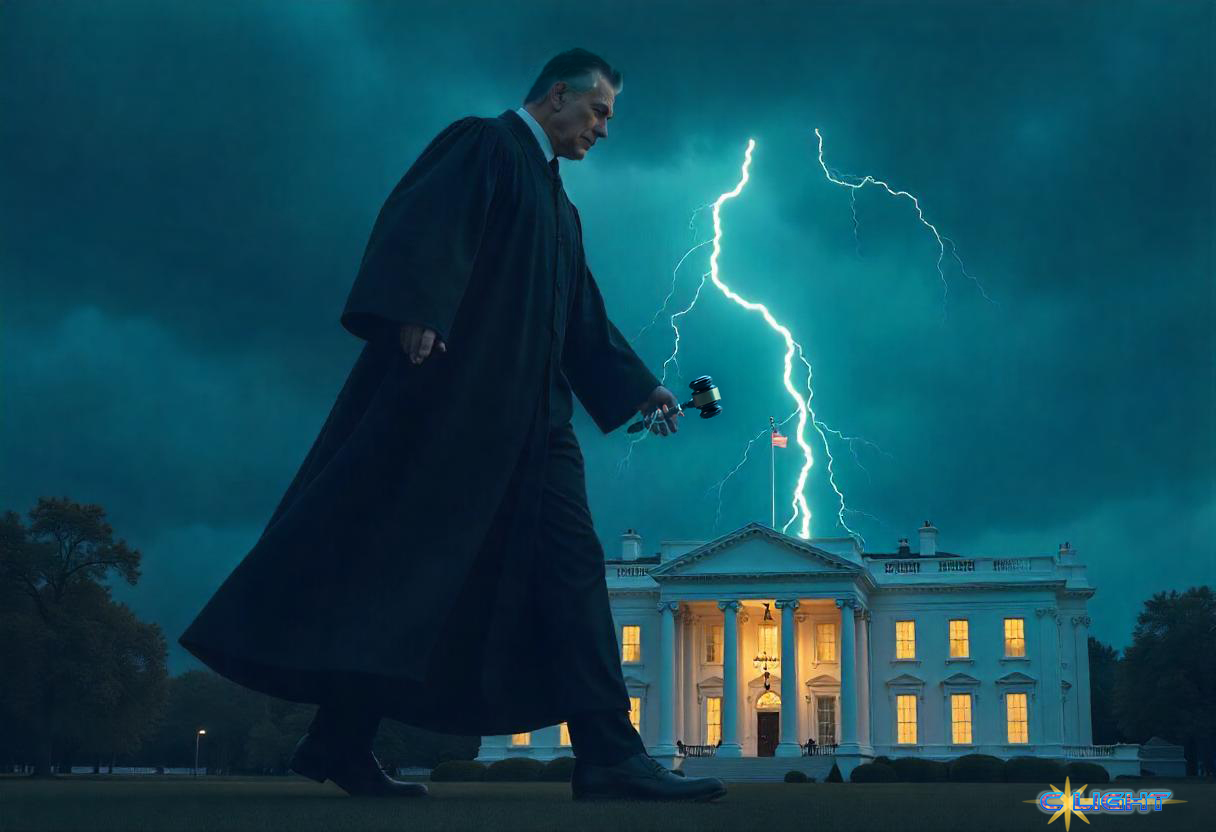If the White House and Department of Justice thought they could bully the entire judicial branch by calling a DC federal judge some ugly names, they were wrong. We were wondering how long it would take before someone spoke up for the Judicial branch. What we weren’t expecting is that it would be the top judge himself, Chief Justice John G. Roberts Jr. The Chief Justice doesn’t normally make speeches off the bench. No one on the high court tends to speak on topics that they are not yet deliberating. That makes today’s words unprecedented.
“For more than two centuries,” the Chief Justice said, “it has been established that impeachment is not an appropriate response to disagreement concerning a judicial decision. The normal appellate review process exists for that purpose.”
The White House doesn’t seem to be in the mood to wait for that process to do its thing. Earlier today, President Felonious Punk called Judge James E. Boasberg, a “Radical Left Lunatic” and called for his impeachment. Fortunately for the rule of law, the President does not have the power to invoke articles of impeachment itself. Only Congress can impeach a federal judge, just as only Congress can approve their nominations.
This isn’t the first time that Roberts has felt the need to give Punk some pushback. In 2018, the Chief Justice said that the U.S. doesn’t have “Obama judges or Trump judges, Bush judges or Clinton judges. The independent judiciary is something we should all be thankful for.” That, too, was in response to the President’s criticism of a judge who stopped inappropriate immigration actions.
This time around, however, the President is pulling in more allies to support him. Representative Brandon Gill, Republican of Texas, said on social media on Tuesday that he had filed articles of impeachment against Judge Boasberg, asserting that the judge’s rulings amounted to “high crimes and misdemeanors.” The act is largely performative and stands little chance of coming to a vote.
While it takes just a majority vote in the House of Representatives to impeach a judge or other official, two-thirds of the Senate must vote to convict, meaning its Republican members would need substantial support from Democrats. The odds of that happening are slim, especially given the current mood in the Senate following a massive public outcry after ten Democrats voted for the Republican Continuing Budget Resolution last week.
In his year-end report on the state of the federal judiciary, issued weeks before Punk took office, the chief justice seemed to anticipate some of what was coming.
“Attempts to intimidate judges for their rulings in cases are inappropriate and should be vigorously opposed,” Chief Justice Roberts wrote. “Public officials certainly have a right to criticize the work of the judiciary, but they should be mindful that intemperance in their statements when it comes to judges may prompt dangerous reactions by others.”
The Chief Justice’s statement might be taken as a direct confrontation with DOJ head Pam Bondi who has been all too eager to push the President’s immigration plan over legal objections from multiple judges. While previous Courts have, at times, responded strongly to a President, most notably in thwarting FDR’s attempt to expand the number of members on the court, a full-scale battle between the two critical parts of the Judiciary hasn’t happened before. On the matter of the court’s opinion, the DOJ can file an amicus brief in an attempt to influence the court, but under no circumstances is the DOJ allowed to tell the court what to do.
This particular case is critical as it has appeared frequently throughout the past 50 days that the White House is willing to completely disregard judges’ orders. Failure to comply with the courts would put the country in a Constitutional Crisis that would demand a response from Congress. At the moment, Congress seems unwilling to take on that role.
Should the President continue his attempts to steamroll over the Judicial Branch without any substantive pushback from Congress, it would then be up to the people of the United States to resist the administration and remove them from office through any means necessary.
Unfortunately, it does not appear that there is sufficient leadership to invoke that type of action.
Discover more from Clight Morning Analysis
Subscribe to get the latest posts sent to your email.










